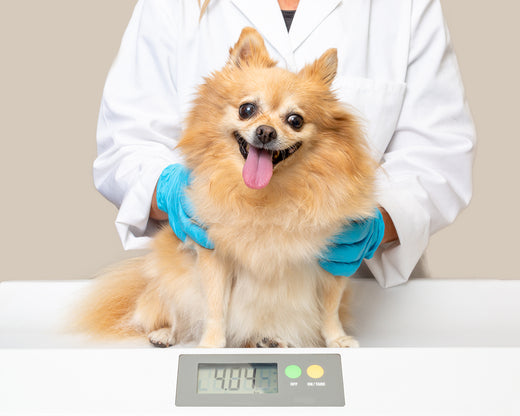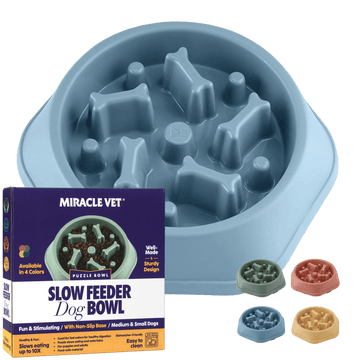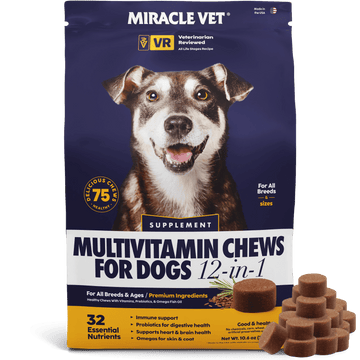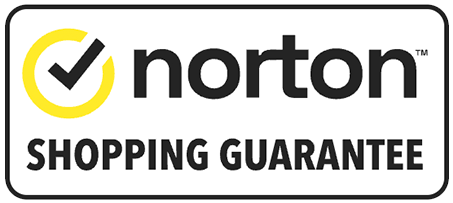If your dog is underweight and struggling to put weight on, you and your veterinarian may decide that a weight gainer is a good idea.
Choosing the right weight gainer can be a difficult decision. This guide will explore the best weight gainers for dogs, when to use them, and what to look for in a healthy weight-gain diet.
Different types of weight gainers for dogs
Choosing the right weight gainer for your dog will depend on how underweight they are and how quickly they need to regain healthy weight. You should also consider any other health issues such as pregnancy, allergies, activity levels, appetite loss, or whether they are a fussy eater.
Liquid weight gainers
Liquid weight gainers and supplements are an easy way to administer extra calories to a very sick dog, a dog that has difficulty eating, or one refusing to eat. Liquid weight gainers can be added to regular food or water or given by syringe.
Miracle Vet liquid weight gainer is frequently used for animals recovering from surgery or illness, rescue pets experiencing stress and not eating, or pregnant dogs needing additional calories for a healthy pregnancy.
Easy to administer, the extra calories have a sweet flavor and include an appetite stimulant to kickstart recovery or weight gain. They also provide essential nutrients to boost energy levels.
High-calorie dog food
High-calorie dog foods are complete formulas that offer a weight management solution. These foods are packed with meat-based proteins and healthy fats, eliminating the need for additional food sources.
When choosing a high-calorie dog food, look for options that provide sufficient calories per cup to meet your dog’s needs based on their breed, size, and weight management stage. Be sure to calculate appropriate serving sizes and select a food that offers balanced nutrition with high-quality ingredients. Transition gradually to avoid digestive issues, especially if your dog has been accustomed to lower-quality food.
High-calorie dog chews
Extra calories on the go! High-calorie dog chews and treats are a convenient way to provide extra calories to your underweight dog. Keep some in a bag or your pocket and give them as treats during walks. This is a good way to maintain their health and add calories between meals.
Miracle Vet high-calorie treats contain 50 calories per chew. For smaller dogs, you can break the chews into smaller pieces. These treats provide three sources of energy:
-
Simple sugars: For a quick burst of energy.
-
Complex carbohydrates: For slow-release energy throughout the day.
-
Healthy fats: To keep your dog feeling fuller for longer.
Packed with essential vitamins and minerals, Miracle Vet treats also include probiotics to support gut health and prevent diarrhea.
When should I use a weight gainer?
Weight gain in dogs should be done in a healthy and controlled manner to avoid negative effects on their overall health. Obesity or unhealthy weight gain can strain organs, trigger health problems, or hinder recovery from illness.
-
Consult your veterinarian: Before starting any weight-gain program, consult your vet to confirm that your dog is underweight for their age or breed, identify any underlying health issues, and develop a plan for healthy weight gain.
-
Identify the cause: Understanding why your dog is underweight or struggling to gain weight is crucial. Medical conditions, parasites, or poor nutrition could be contributing factors. Work with your vet to address the root cause.
-
Provide quality and balanced nutrition: Select a weight-gain product with high-quality, balanced nutrition. It should include adequate protein, healthy fats, and essential vitamins and minerals. Avoid products with fillers or artificial additives.
-
Choose natural and whole ingredients: Opt for weight gainers made with natural, whole food ingredients. Avoid excessive additives, preservatives, or artificial flavors.
-
Adopt a gradual and controlled approach: Weight gain should be gradual to avoid stressing your dog's system. Rapid weight gain can lead to health issues. Introduce new food by mixing 25% of the new food with 75% of their current food for a week, then gradually increase the new food percentage. This prevents stomach irritation.
-
Monitor regularly: Track your dog's progress by monitoring their body condition score, overall health, and any adverse reactions. Regular vet check-ups ensure that their weight gain is progressing appropriately.
To see which weight gainer is best for your dog, check out our products and tips on healthy weight gain for dogs.











